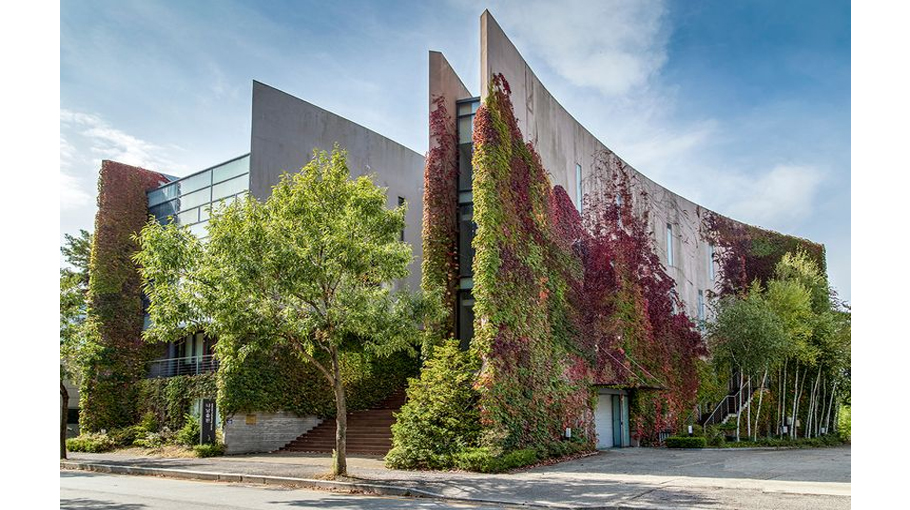Words as weapons of peace: Reflections from 2023 DMZ literature festival
Literature reminds us that to kill someone else, one has to kill one’s humanity first

Each great writer embodies a language, a nation, a civilisation even, with its collective memories and aspirations. Writers carry the wisdom of centuries; they are also our protection against forgetting. They are the guardians of our humanity.
This is my renewed realisation at the 2023 International Demilitarised Zone Peace (DMZ) Literature Festival being held at Paju Book City, South Korea. Writers from all continents, including two Nobel laureates, are here to mark the 70th anniversary of the Korean armistice of 1953. The only invitee from the region, I feel deeply honoured to represent the Indian subcontinent.
Speaking of the venue of this festival, the world has almost forgotten the horrific war in which Koreans fought and slaughtered one another. Though hostilities between North and South Korea ceased, the war has not officially ended. The armistice was only an agreement to cease hostilities, a tripartite treaty between the United States and United Nations Command representing South Korea, Kim Il Sung and General Nam Il of the Korean People’s Army representing North Korea, and Chinese Defence Minister, Peng Dehuai, representing the Chinese People’s Volunteer Army. The world has also forgotten the incredible loss of life and suffering of the Korean people in the war which claimed an incredible 2.5 million lives, with wartime mobilisation running into millions on each side.
Writers as truth-tellers
Seventy years after, the proposed Paju Declaration is loud and eloquent call: “we are saying no to all wars on earth; the vicious cycle of death should stop immediately.” How apt, given that when the invitation to this conference was issued, the Russia-Ukraine war, started in March 2022, was still dragging on.
But, now another war has also broken out in the Middle East. The world is a much more dangerous place today than ever before in this century. Are we on the brink of a new Cold War? If so, the DMZ has become an even more perilous zone of conflict.
Paju, where this conference is being held, is not only close to the DMZ, but houses the train station for the railway line that connects the South to the North. The Imjingang River also flows through it linking the two parts of the divided peninsula. But Paju is also home to one of the largest concentrated publishing complexes in the world. It symbolises the power of literature to counter the rhetoric of war.
The Paju Peace Literature Festival, thus, embodies a dream, so eloquently expressed in the Declaration: “While enduring the pain of looking into the abyss stained with terrible wounds and overwhelming grief, we have made ceaseless efforts to end the division system as soon as possible.” As a writer, I too share this dream. Why? Because writers as truth-tellers can both serve and save the world by safeguarding and purifying language from propaganda and weaponised fake narratives.
When we confronted with the horrors committed by humanity against humanity, the enormous violence and suffering that we ourselves have inflicted on one other, especially in times of global crises such as war, but in fact, on a daily basis, when we hurt, exploit, and even destroy each other, literature emerges as a potent medium to reflect, critique, and provide, if not a solution, at least some space for reflection, even solace.
Navigating the complexities
Great writers, with their powerful imagination, unique use of language, and potent ideas become the conscience keepers of humanity. They transcend national, linguistic, and cultural boundaries, offering insights and perspectives that help us navigate the complexities of our world.
Unlike politics, economics, or military might, literature and the arts are produced and focused on individuals. But these individuals, through their own personal transformations, realisations, and acts, however apparently minor or private, also impact the collective consciousness and conscience of humanity as a whole.
One can only hope that a call for peace, dignity, and mutually beneficial coexistence so close to the DMZ will mean that one day — sooner than later — artificial, man-made boundaries and barricades will be removed. And a people who have a common geography, language, culture, and thousands of years of a shared past, but are divided by international politics and ideological differences, will be united once again. I, for one, believe that many among us will live to see that happy and glorious dawn.
I want to end with a moral question that Mahatma Gandhi, the greatest apostle of non-violence in our times, posed. If we have a choice between killing and being killed, what would we do? Gandhi believed that dying for a cause was better than killing for one.
Why? Because we could never be sure enough of the moral correctness of our cause to take someone else’s life. By living, as well as dying, for peace we can make a difference to the world.
Not everyone can make such a sacrifice. It is much more amenable to individuals rather than nations. For ordinary mortals, legitimate self-defence is more attractive than principled self-sacrifice for peace.
A coward’s non-violence is also much easier than a brave person’s violent pushback against injustice. Gandhi was perhaps the only great leader of his time who believed that non-violence is more powerful than violence. Else, he argued the human race would not have survived.
Literature reminds us that to kill someone else, one has to kill one’s humanity first. Writers prevent this, by humanising us; they help us to experience ourselves as human once again. In a world so divided, let us be soldiers for peace rather than willing or compulsive belligerents.
Makarand R. Paranjape is a Professor of English at the Jawaharlal Nehru University.
Source: Gulf News


